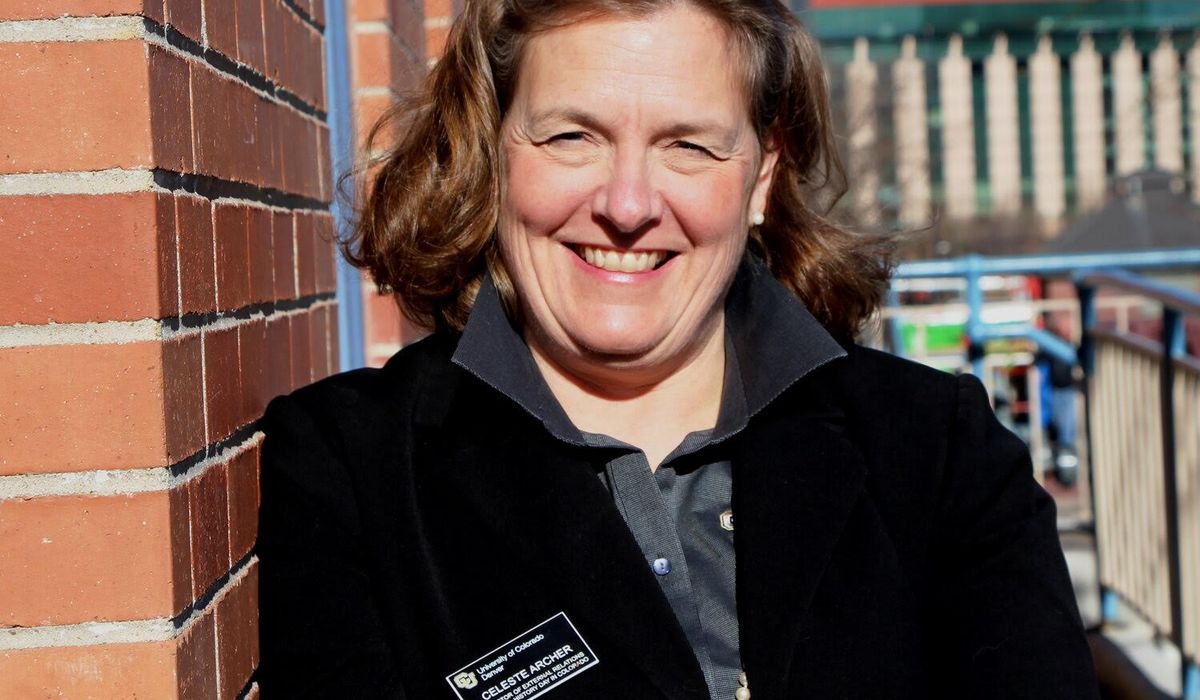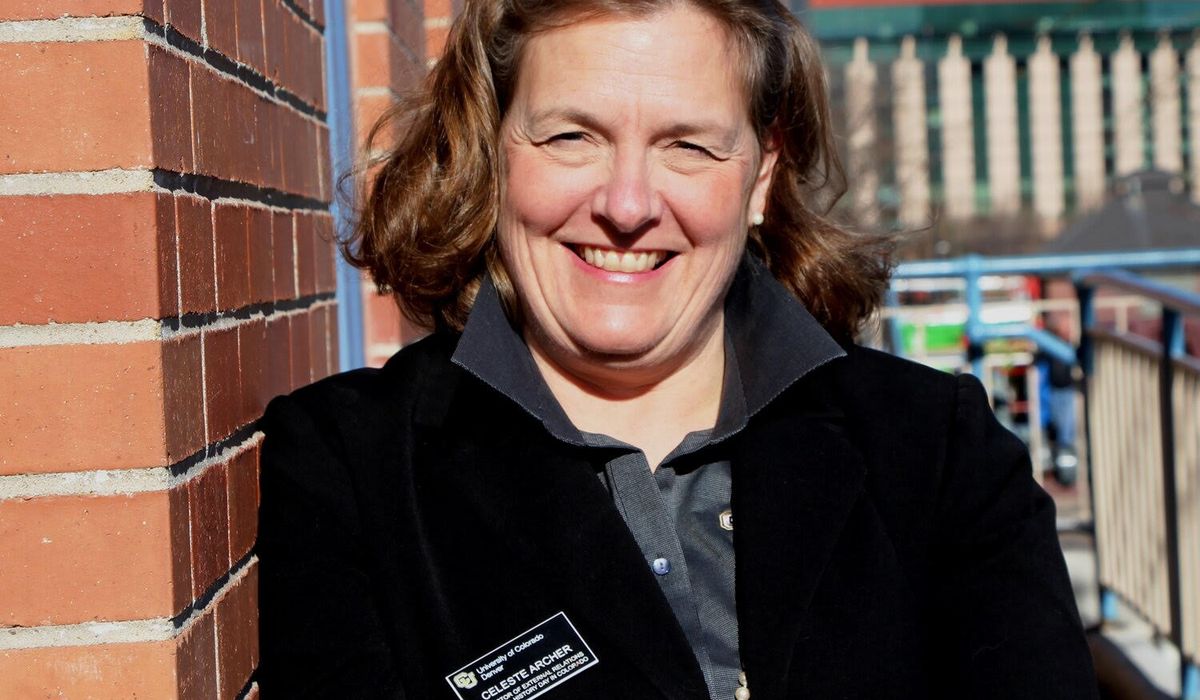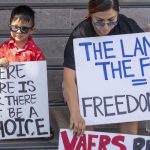
DENVER | Celeste Archer was driving to work at the University of Colorado Denver last month when she learned she had been banned from campus because she had contracted or been exposed to the coronavirus — which wasn’t true.
Before Ms. Archer had a chance to clear it up, however, she was told she would need to undergo contact tracing and school administrators were alerted to her status — all based on an anonymous complaint that her attorney described as a “hoax.”
“I called the person who was the signatory of that email and said, ‘What is this? I don’t have COVID, never have had it, have no symptoms,’” Ms. Archer told The Washington Times. “And her reply to me was that ‘somebody heard that they heard that you were showing symptoms or had tested positive.’ And that’s when I said, ‘I’m sorry, what?’ The whole thing was based on something somebody had heard. All hearsay.”
Last week, Ms. Archer, who runs the National History Day in Colorado program, sued the University of Colorado Board of Regents in federal court, arguing that she was denied due process and raising red flags about the potential for harassment from false COVID-19 allegations.
“Declaring that somebody has COVID is truly the new ‘Scarlet Letter,’” said Ms. Archer, a 25-year educator and founder of the Colorado Student Leaders Institute. “When I was going through it, all I could think was, this is a repeat of the worst parts of our history.”
Sarah Erickson, CU Denver public-relations manager, pointed out that the Sept. 3 exclusion from campus was resolved within hours, allowing Ms. Archer to return to campus the following day.
“Our No. 1 goal throughout the pandemic has been to keep our campus community safe,” said Ms. Erickson in an email. “We followed our safety protocols and responded with good intent, as we would with any reported positive case of COVID-19 on campus. In less than two hours, we sorted out any misunderstandings and invited the employee back to campus.”
Ms. Archer has sought to discover the identity of her accuser, which the university has so far refused to provide.
“We will not be releasing the name of the individual who said Archer had COVID-19,” said Ms. Erickson.
William Trachman, the Mountain States Legal Foundation attorney who represents Ms. Archer, said the refusal to disclose the accuser’s identity has prevented his client from filing a police report or bringing a harassment complaint before the university.
“We’ve asked for it and they said no,” Mr. Trachman said. “It’s one thing to keep things a secret when you want to encourage anonymous reporting; it’s another when you know the report is fake and it was a hoax and a harassment campaign. To still respect some intangible privacy right on behalf of the hoaxer seems a little bit weird.”
Ms. Archer was able to resolve the issue quickly, but she’s also a prominent figure in education circles: Sen. John Hickenlooper appointed her to the Early Childhood Education Commission during his tenure as Denver mayor, and the Clinton Foundation named her a Presidential Timeline Archives Scholar in 2012.
“What if it was a student?” Ms. Archer asked. “I just think about the mental well-being of a lot of people right now. What if it happened to somebody who wasn’t quite so able to advocate for themselves? It worries me what could happen to them.”
Mr. Trachman said that “we’re trying to make the point that the hysteria over the pandemic has gotten to the point where innocent people are getting caught up in these sorts of protocols.”
“Celeste is the winner of all these awards and part of all these organizations, and the fact that she, based on a single anonymous report, could be excluded from campus and forced to prove her innocence is totally because people have lost their minds about COVID-19,” he said.
Her exclusion from campus came at a cost, according to the lawsuit filed in U.S. District Court for the District of Colorado.
“The stress and confusion surrounding Ms. Archer’s exclusion from campus and the refusal of the Defendants to identify her harasser caused her to miss a deadline related to her own class enrollment, the fee for which is $1774.64,” said the complaint. “Ms. Archer continues to suffer emotional distress due to this incident, which Defendants continue to exacerbate with their misconduct.”
Included in the lawsuit was a Sept. 3 email to Ms. Archer from university attorney Chris Puckett, who appeared to take her side, saying: “No one should be excluding folks from campus without a clear level of verification and information.”
“I checked with our team and we are changing our process and communications,” Mr. Puckett said in the email. “No one should have said you were excluded from campus. They were moving way too fast.”
Ms. Archer contacted him after receiving the email from Kimberlyn Cook of the Environmental Health and Safety Department’s occupational health division telling her to avoid coming to campus, fill out a self-report form, and await word from a contact tracer.
The same day, Ms. Archer’s supervisor received an email telling her that “Celeste Archer is unable to be physically present on campus at this moment” and giving her a contact for “COVID-19 related questions,” which the supervisor forwarded to two other administrators.
“[B]efore being able to notify the school of the false report, Ms. Archer’s colleagues had already been contacted,” said the lawsuit. “In short, the harassment efforts against Ms. Archer succeeded only because of the COVID-19 alert system in place at CU Denver.”
Ms. Archer said she was tested for COVID-19 four times while directing a 2021 university summer program, and came up negative every time. She has also been fully vaccinated.
“The irony is that I jumped through so many hoops to make sure I’ve fulfilled all of their requests, whether I believe in them or agree with them or not,” she said. “I’ve done everything they’ve asked me to.”
Lending credence to the hoax theory is that she was outside the state — and has the receipts to prove it — on the dates that her accuser alleged that they had contact.
“The other part of this that is disconcerting is that they based their claim on some specific dates, saying they had seen me and had contact with me on those dates,” said Ms. Archer. “I wasn’t even in the state on those dates. So the person who is making the claim is knowingly telling an untruth.”
As federal and state officials ramp up their COVID-19 mandates, Mr. Trachman said he worries that an uptick in due process violations will follow.
“I haven’t seen a case exactly like this where it’s an instructor barred from campus over a false report, but obviously we’re seeing a lot of COVID activity, and we’re getting a lot of calls about governments doing more and more to respond to COVID,” he said. “As governments are doing more, they’re making mistakes, they’re slipping up, and they’re going too far.”
Health, The New York Today




